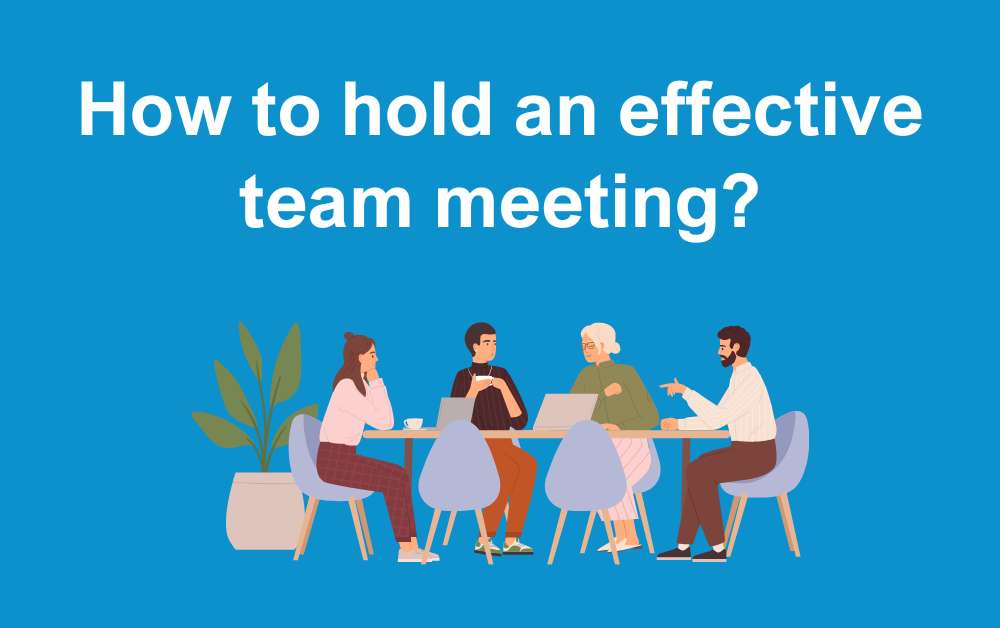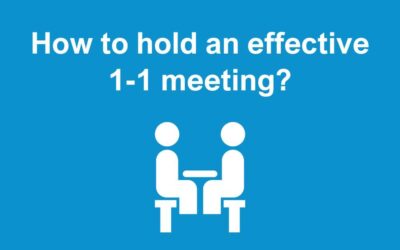Effective meetings are not only integral to achieve team goals and successful completion of tasks, but also are reflective overall of team functioning. They also allow for open conversation that draws upon each employee’s knowledge, skills, and perspectives to solve problems and to support one another in achieving the team’s collective goals.
Here we share with you some key tips to have an effective team meeting.
Purpose
The first thing is to have a purpose. Why is the meeting being held? This could be that you hold monthly team meetings to determine where everyone in the team is or these could be quarterly meetings that are held to discuss the business, goals and tasks.
A team meeting is a perfect opportunity to achieve a lot of things. It is a chance to catch everybody up on what is going on in the overall scheme of things. It is an opportunity to gauge how each individual is traveling and to identify potential problems. It’s also a chance to reinforce your mission statement and refocus everyone on the team goals.
Team goals should actually be at the heart of every team meeting. If your goal is to make more sales, then everything discussed at the meeting should reflect this in some way.
Set the Time and Date
Plan ahead and choose a time that suits all of your team, and think about how this impacts on customers – ensure you plan for that. We use a shared calendar in our office, which means we can all see what everyone has on – this is great for planning as we can book meetings at a time we know everyone is available. If you have large teams, or work shift patterns, not everyone will be able to attend so ensure you think about how you can share this message with all your team. In these cases, you might want to vary when you hold the meetings to ensure everyone has a fair opportunity to attend. For example, setting a day of the last Friday of the month will not work if you have staff who never work a Friday.
It is good practice to allow as much notice as possible for your meeting to allow your employees time to schedule their work oad around this.
Agenda
We also see a lot of good practice with some of our clients, where they send everyone an agenda along with the date the meeting is to be held. This allows everyone to know what will be discussed, and you can also invite agenda items prior to sending this out.
You can also let your people know that following the meeting, there will be some action points, which you can share with the team – this gets them involved and allows you to implement some actions!
Consistency
It is important to be consistent and stick to the date and time. The last thing you want is your people to rearrange their work schedules, make plans for the meeting, only for it to be cancelled at the last minute. We understand that sometimes things can happen operationally, but cancelling team meetings sends out a message that your people are not important which can lead to poor engagement.
Assign a Note Taker
A common mistake committed during team meetings is that no one takes note of the discussions and agreed actions. When this happens, no one remembers what he or she is supposed to do and nothing is accomplished.
To avoid this, why not nominate someone from the team to take minutes or notes of the key points and these should be sent to all team members to remind them of their tasks and responsibilities? This also helps you share the messages with those that couldn’t attend the meeting and gives you a tool to follow up with people.
Share all information
A team meeting allows you time to discuss what’s going on within the business and allows you to share all key operational things that are occurring.
No matter how trivial you think it is, it is important to share all information about the business with your employees – this could include any planned recruitment, people who are leaving, special offers – involve your team and don’t allow a culture of “no one told me” to creep into your business.
Encourage Feedback
We’ve seen some team meetings where it’s the manager or Director sharing information, which is great, but there’s no scope to get feedback. Meetings do not only need to be a download of information; you should allow your employees the chance to give feedback. You could also ask for feedback on the formats of the meeting, for instance what could be changed – time, frequency content etc. If you give people the opportunity to contribute, you’ll get more out of it.
Many managers make the mistake of assuming that the way they conduct team meetings is effective but it never hurts to ask people what they think.
Key Actions
Team meetings are nothing if employees don’t know their key actions. Before you close a meeting, it important to assign all the key actions that are required to be completed by the next meeting and each employee should know the role they have to play to ensure these actions are completed and when. Every employee must have a clear understanding of what he or she must do.
You should conduct periodic checks with your people to see where they are at with things, rather than leave this to the next meeting. This ensures that the team stays on track and if there are delays, these can be addressed immediately. It’s also another opportunity to open up communication channels with your people.
1-1 Meetings
You can also follow up by arranging 1-1’s with your team. We’ll share some tips on effective 1-1s next week, but these allow you the opportunity to ask what they thought of the team meeting and also to obtain specific concerns they have that they feel they could not discuss during the team meeting.
Your Turn
What do you find challenging about team meetings? Do you have some good practice you can share?
Join the conversation and let us know your thoughts.







